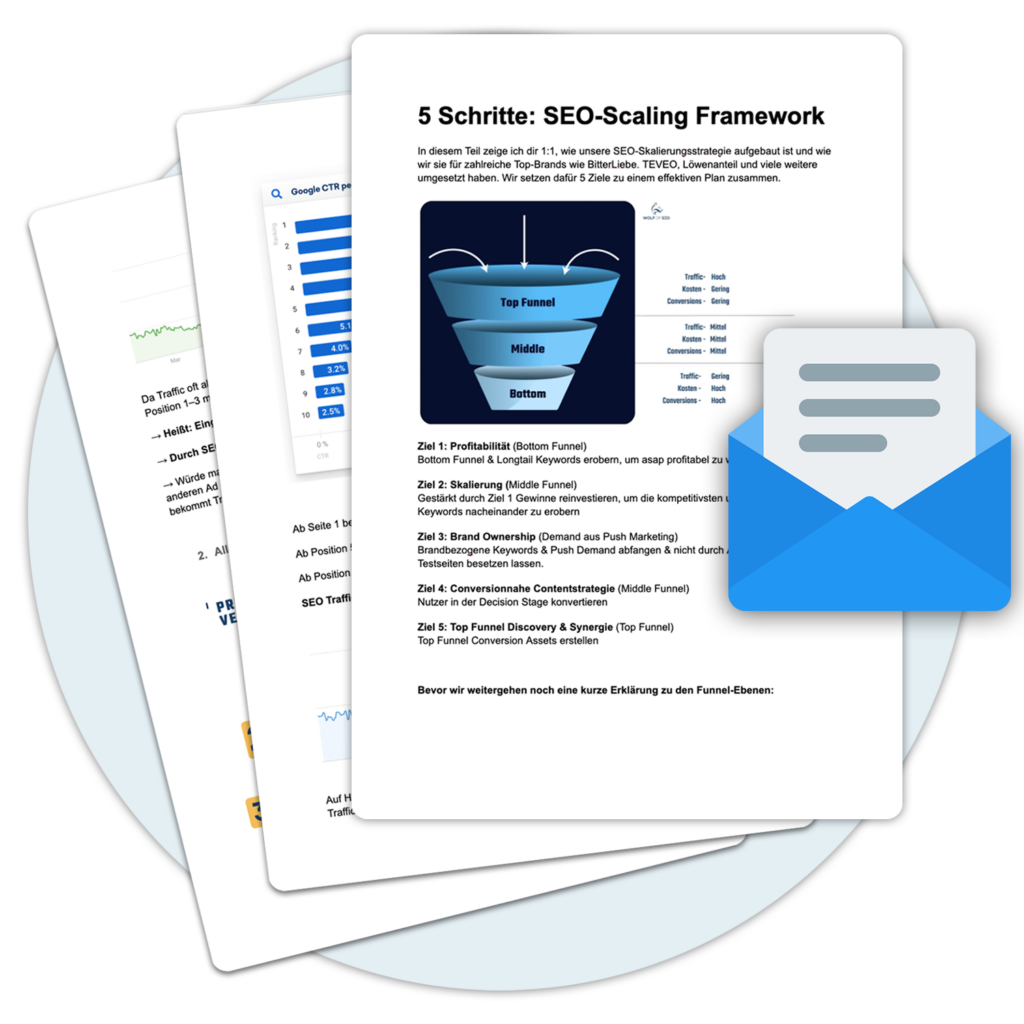Information retrieval is a key aspect in the age of the Internet and digital transformation. In a world where data is abundant, the ability to effectively find and use relevant information is critical to the success of businesses and organizations.
The process of information retrieval involves collecting, indexing, searching and matching information. Advanced technologies such as artificial intelligence and machine learning are playing an increasingly important role in this process.
This introduction to information retrieval highlights the fundamentals, history, and process of information retrieval. It also presents evaluation methods as well as case studies and examples. Finally, an outlook on the future of information retrieval is given.
Basics of information retrieval
The fundamentals of information retrieval play a central role in effective information access and retrieval. This is not just about collecting data, but also about organizing it in a targeted manner and making it accessible for later retrieval.
An important aspect of the basics of information retrieval is the definition and meaning of this process. It is the systematic search, collection and presentation of information in a structured form to enable users to find relevant data.
There are different types of information retrieval that can be used depending on individual requirements and contexts. These include, for example, text-based information retrieval, image-based information retrieval, and multimedia-based information retrieval. Each of these types has its own challenges and opportunities.
To understand the basics of information retrieval, it is important to look at the history of this process. Early developments in information retrieval allowed people to search and retrieve information as early as ancient times. Then, in the modern era, more advanced technologies and methods were developed to make information retrieval more efficient.
The actual process of information retrieval involves the collection and indexing of information, as well as searching for and matching the information sought with the data collected. Effective collection and indexing is critical to retrieving information quickly and easily later.
Evaluation methods also play an important role in information retrieval. They make it possible to assess the quality and Relevance evaluate the information collected and recovered. This includes, for example, techniques such as the evaluation of search results, the analysis of hit accuracy, and the verification of search algorithms.
To better understand the theoretical principles and concepts of information retrieval, case studies and examples can be helpful. They provide concrete application examples and show how information retrieval can be applied in different areas.
An outlook on the future of information retrieval shows that AI and machine learning will play an increasingly important role. These technologies will make it possible to further optimize the information retrieval process and achieve even more precise results.
Overall, the basics of information retrieval are an essential part of modern information management. They provide the basis for effective and efficient use of information and help to ensure that relevant data can be accessed quickly and easily.
Types of information recovery
In information retrieval, there are different ways in which information can be found and accessed. Each method has its own advantages and disadvantages and is suitable for different situations. Some important types of information retrieval are presented below:
- Manual research: Here, information is actively sought and collected by people. This can be done, for example, by looking through books, magazines or asking experts. Manual research requires time and effort, but can yield very specific and relevant results.
- Data Mining: This method uses statistical analysis and algorithms to automatically search large amounts of data and extract relevant information. Data mining can be used to identify patterns and trends in the data to gain useful insights.
- Content analysis: This involves analyzing the content of documents or texts to identify relevant information. This can be done, for example, by using keywords or linguistic patterns. Content analysis can be used for categorizing and structuring information.
- Information Retrieval Systems: These systems are specially developed software that helps retrieve information from large databases or the Internet. They allow performing search queries and provide relevant results based on the entered search terms.
These types of information retrieval can vary depending on the use case and available resources. It is important to select the right method to effectively and efficiently find the desired information.
Information retrieval process
The process of information retrieval involves several steps aimed at collecting and analyzing relevant information from a variety of sources. This process is critical to obtain accurate and comprehensive information for various purposes, whether for scientific research, marketing analysis, or strategic decision-making.
The two main phases of the information retrieval process are explained in more detail below:
1. collection and indexing of information
The first phase of the process consists of collecting and indexing relevant information. This serves to make the information easily accessible and searchable. Various technological tools and methods are used to gather information from different sources such as websites, databases, social media, etc. Some of these tools use so-called Webcrawlerwhich search the Internet for new information and then store it in a database.
The information collected is then indexedwhich means that they are organized and categorized according to certain criteria. This facilitates the subsequent search and matching of information.
2. search and match
The second phase of the process is to search and match the collected information to obtain relevant results. For this purpose, various search algorithms and filters are used to compare the results according to Relevance and topicality to sort. The search can be done by specific keywords, categories or other criteria.
Matching is done by comparing the collected information with a given search query or set of criteria. Here, various parameters such as text similarity, context, Relevance and reliability of the source are taken into account. The results are then presented according to their match with the search query.
Through the process of information retrieval, companies can effectively extract relevant information from large amounts of data and use it for their purposes. However, it is important to continuously improve the process and pay attention to current developments such as the use of artificial intelligence and machine learning to further increase the efficiency and accuracy of information retrieval.
Evaluation methods in information retrieval
Evaluation methods play a crucial role in information retrieval. They serve to assess the quality and Relevance evaluate the information recovered to ensure that it meets the needs of the users. There are several evaluation methods that can be used in information retrieval.
1. relevance assessment: This method assesses the Relevance of the information found in relation to the search query. Various factors are taken into account, such as how well the keywords match or how up-to-date the information is. On the basis of this evaluation, a ranking of the Search results be created.
2. quality assessment: Here, the quality of the information found is evaluated. This includes factors such as the credibility of the source, the completeness of the information and the timeliness of the data. Good quality assurance ensures that the results of information retrieval are trustworthy.
3. performance evaluation: This method measures the performance of the information retrieval system. This includes factors such as the speed of the search, the accuracy of the results, and the user-friendliness of the interface. Regular performance evaluation helps improve the system and make it more efficient.
4th user rating: This method evaluates user satisfaction with the information found. User feedback can provide important information for further optimizing the system and meeting user needs.
The selection of the appropriate evaluation methods depends on various factors, such as the use case, the objectives, and the available resources. A combination of different evaluation methods can help to ensure optimal and effective information recovery.
Case studies and examples of information recovery
An important component of information retrieval is case studies and examples that illustrate the process and methods. Some interesting case studies and examples are presented below:
1st case study: Improving the Search results
In one company, it was found that the Search results on the internal knowledge database became increasingly imprecise. With the help of a comprehensive analysis of the search algorithm and a revision of the indexing methods, the Search results significantly improved.
2. case study: implementation of AI technologies
A research institute relied on machine learning and artificial intelligence to quickly and efficiently extract important information from large data sets. By implementing advanced algorithms, relevant information could be found in a very short time.
3rd example: Search engine optimization for a E-commerce-company
An online store wanted to increase its visibility in search results. Through targeted search engine optimization (SEO), the company was able to increase its organic Range significantly and thus reach more potential customers.
Example 4: Personalized recommendations based on user data
A major streaming platform uses data analytics and machine learning to generate personalized recommendations for its users. The analysis of user behavior makes it possible to suggest suitable content based on interests and preferences.
Outlook: The future of information retrieval
In today's digital world, information retrieval is becoming increasingly important and complex. As technology continues to evolve, the way we find and use information will continue to evolve. Here are some exciting trends and developments we can expect to see in the future of information retrieval:
- Artificial Intelligence (AI) and Machine Learning: New technologies such as AI and machine learning enable us to effectively analyze large amounts of data and extract relevant information. By using algorithms and machine learning, search engines and information services can become smarter and deliver more accurate results.
- Natural Language Processing (NLP): With the advancement of NLP technologies, it will be possible to search and process information in natural language. This means that we will be able to formulate search queries in complete sentences or questions and still get relevant results.
- Improvements in personalization: In the future, information services will be better and better at understanding our individual preferences and needs. By analysing our behaviour and interactions, personalized recommendations and Search results that are tailored to our specific interests.
AI and machine learning in information retrieval.
The integration of artificial intelligence (AI) and machine learning into the field of information retrieval has led to significant advances. By using advanced algorithms and intelligent systems, it is possible to find information more efficiently and accurately.
One of the main applications of AI in information retrieval is automatic classification and indexing of data. Through machine learning, a computer can be trained to recognize certain patterns and categories in texts and categorize the information accordingly. This facilitates subsequent search and access to relevant information.
Another important application is automatic speech processing. Through the use of AI technologies such as Natural Language Processing a computer can understand and interpret human language. This makes it possible to make search queries in natural language and obtain precise results.
In addition, the use of AI and machine learning also enables continuous improvement of the Search results. By analyzing and evaluating user feedback and behavioral data, the system can learn to Search results to the interests and needs of the users. This means that the Search results increasingly relevant and personalized.
Conclusion
Information retrieval plays a fundamental role in today's world of online marketing and search engine optimization. By effectively recovering and leveraging relevant information, companies can improve their digital strategies and increase their competitiveness.
During the process of information retrieval, information is collected, indexed and searched to deliver the most relevant results. The use of search engines and modern algorithms allows companies to find and match content to provide the best results for their users.
A future development in information retrieval lies in the integration of artificial intelligence and machine learning. By using advanced technologies, search engines and other information sources can provide relevant information even more effectively and accurately.
It is important that companies understand and apply evaluation methods in information retrieval to improve the quality and Relevance of the information found. By conducting case studies and examples, companies can learn from proven strategies and best practices and improve their own processes.
Overall, information retrieval is a dynamic and diverse field that is constantly evolving. Companies should continuously keep abreast of new trends and developments in order to remain competitive and strengthen their digital presence.
« Back to Glossary Index





 By
By 